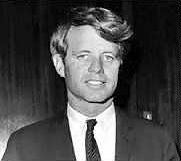Old news, but an article in the
Boston Globe last summer had this to say about comments Rick Santorum had made about Boston and the sexual abuse crisis in 2002, and how he later defended those comments:
Senator Rick Santorum of Pennsylvania, the third-ranking Republican in the Senate, refused yesterday to back off on his earlier statements connecting Boston's ''liberalism" with the Roman Catholic Church pedophile scandal, saying that the city's ''sexual license" and ''sexual freedom" nurtured an environment where sexual abuse would occur.
''The basic liberal attitude in that area . . . has an impact on people's behavior," Santorum said in an interview yesterday at the Capitol.
''If you have a world view that I'm describing [about Boston] . . . that affirms alternative views of sexuality, that can lead to a lot of people taking it the wrong way," Santorum said.
Santorum, a leader among Christian conservatives, was responding to questions about remarks he made three years ago on a website called Catholic Online. In those comments, Santorum said, ''It is no surprise that Boston, a seat of academic, political, and cultural liberalism in America, lies at the center of the storm" of the clergy sexual abuse scandal.
The junior senator is chairman of the Senate Republican Conference and is considered a possible candidate for his party's presidential nomination in 2008, if he wins reelection to a third Senate term next year.
''I was just saying that there's an attitude that is very open to sexual freedom that is more predominant" in Boston, Santorum said yesterday. Reminded that the sexual abuse occurred across the country, Santorum said that ''at the time [in 2002], there was an indication that there was more of a problem there" in Boston.
I’ve always found the double-edged view held towards Boston by people in other parts of the country to be fascinating.
One the one hand, there is the old “Taxachusetts” label, and the association of the state with tax-and-spend liberals, Kennedys, Barney Frank, John Kerry, Gerry Studds, Mike Dukakis and Willie Horton. There’s the Big-Dig federal boondoggle. There’s the Kremlin on the Charles and all the "pointy-headed socialist professors" to be found not only at Harvard, but elsewhere among the elitist colleges and universities. There is certainly some truth in this stereotype, although it has become a somewhat dated perception in that it ignores the fact that the Republicans have had a lock on the governorship since 1991, and the democratic hold on the other levers of power in state government are being slowly and systematically broken. It is also true that Boston has a large and activist gay community, and the gay marriage bill has once again shot Massachusetts up to the top of the list of alleged blue-state notorieties.
Then there is the other Massachusetts, or rather, the other image of Boston... Ethnic. Bigoted. Parochial. Insular. Clannish. Rude. Racist. Stand-offish. Unfriendly. Bog-Irish. Catholic.
The busing crisis of the 1970’s left an indelible mark on the city that has been hard to shake, especially when it had been built upon a perception already held.
Back in the NBA heyday, it was a common refrain to hear from Los Angelenos what a racist city Boston was. Unfortunately for us, the glory days of the Celtics ended before the L.A. incidents surrounding Rodney King, Darryl Gates and the LAPD, the riots, and the O.J. Simpson trial fiasco, so we were never able to return the favor in full.
The point I’m getting at, is that the community that was producing both those who were doing the victimizing and those being victimized in the sexual abuse crisis was clearly associated with the latter “Boston” than with the former.
The Catholic Church in Boston has always had an emphatic Irish stamp, from the time that the Irish first started arriving here in big numbers in the 1840’s. It was militant, triumphant, and had a whiff of Jansenism about it that is common to Irish Catholicism. Back in the day, they were happy to try to out-Puritan the Puritans. This staunchly Irish character made Church life difficult at times for Catholics of other ethnicities.
The Cardinals were for the most part (with the exception of Umberto Medeiros) proud of being hardnosed types of men. O’Connell, Cushing, Law… They don’t come much more conservative than that. We had Fr. Feeney here. Before WWII, Boston was arguably the most Coughlinite city in America. After Vatican II, the only place where I heard about clown masses and excesses in liturgical abuse was at the Paulist Center (btw, I’m not aware of any Boston Paulist fathers being accused). For the most part, the liturgies were staid. Boston Catholics are notorious for not wanting to sing during Mass. Unlike the Midwest, they’ve never been much into holding hands during the Our Father and making the run of the whole Church in order to exchange the Sign of Peace.
Back in the days of William Cardinal O’Connell, Catholics lived within a siege mentality in a sea of hostile Yankees, and they were proud to set their priests and bishops up in great digs as grand men. It was a way of thumbing their noses at those who looked down on them with such scorn. You couldn’t show any weakness in front of the foe. O’Connell said to the flock “Just trust me and do what I tell you”, and people did. This defensive closing of the ranks was ingrained over generations.
Therefore, if Catholic parents trusted their sons to be alone in the presence of a priest implicitly, it was not because they were liberal about sexual mores. It was because of their nascent traditionalism. It was because it was absolutely unthinkable to them that a Catholic priest (mostly local, home-grown priests brought up within the community) would and could ever do anything to betray their children, them, the Church, and God. Their clerical status was exalted. No one thought of questioning them. If the priests who committed these crimes and the bishops who protected them acted the way they did, it was for the same reasons. The story is long, well-known and documented about how the hierarchy reacted when priests were caught.
The problem was excessive clericalism, not excessive liberalism, and advocating a return to a more extreme form of traditionalism in the Church will only increase clericalism.
This is why I think Rick Santorum was wrong, and why he should have offered the Catholics in Boston an apology when offered the opportunity instead of defending his earlier remarks. I don’t know much about his opponent in the upcoming senatorial election in Pennsylvania, Bob Casey Jr., but his father was a fine man, and the son seems to share many of his views. If I lived in Pennsylvania, Bob Casey Jr. would get my vote.






